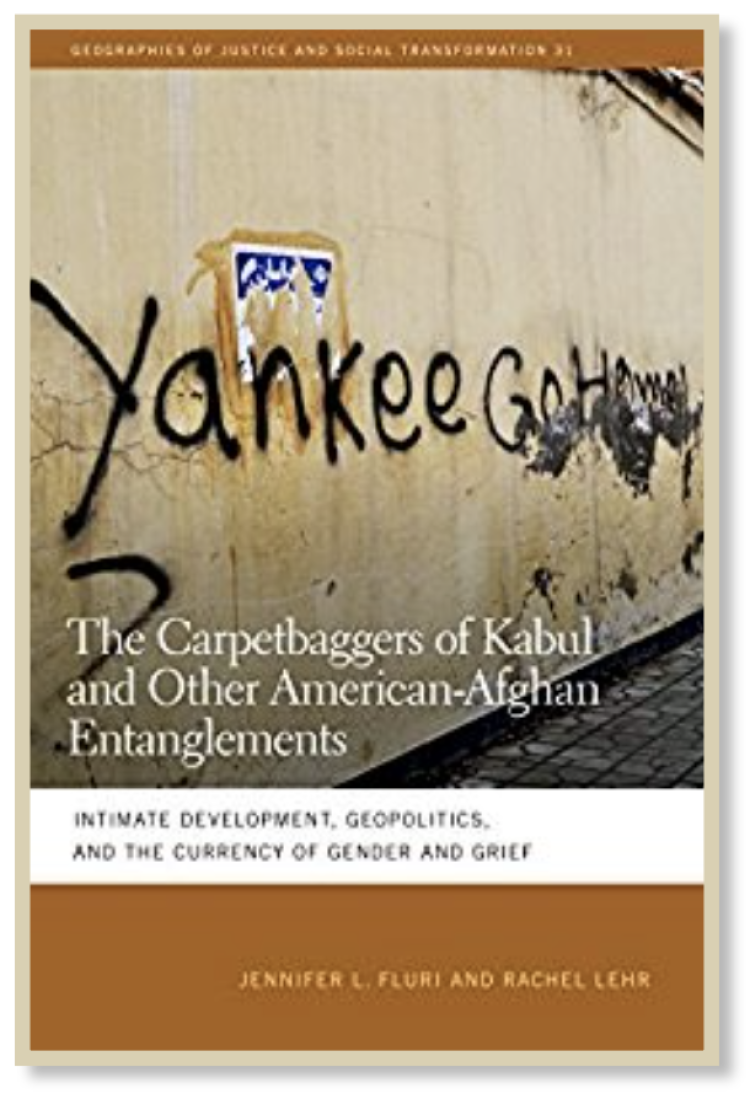Jennifer Fluri’s New Book
The Carpetbaggers of Kabul and Other America-Afghan Entanglements: Intimate Development, Geopolitics and the Currency of Gender and Grief, published by University of Georgia Press in January 2017.

These lectures were developed from my research on geopolitics and international aid and development in Afghanistan, and Rachel’s ethnographic research and experiences living and working with Afghans. My research included questionnaires and interviews with Afghans and international workers primarily living and working in Kabul, Afghanistan. Rachel’s research was gathered while she was completing her doctoral dissertation in rural Afghanistan. Our lectures attempted to provide a complex and complicated view of both international geopolitics and daily life in Afghanistan, which included presenting images, short videos, and stories not seen in the mainstream media at the time.
Developed from these lectures, this book presents the complexities, complications, and contradictions of U.S.-Afghanistan relations and unravels them through analyses at the intersection of the personal and the geopolitical. In order to effectively disentangle these multifaceted stories and view them clearly and critically, we center our analyses of American-Afghan entanglements at an intimate scale. The case studies developed in the book exemplify the interlocking relationship between international geopolitics and everyday lives. Dominant development programs have fixated on changing the culture to liberate women and meet the demands of capitalistic and market-driven development paradigms. This book seeks to analyze the geopolitics and messiness of assistance and development by examining the ordinary untidiness of American-Afghan entanglements.

